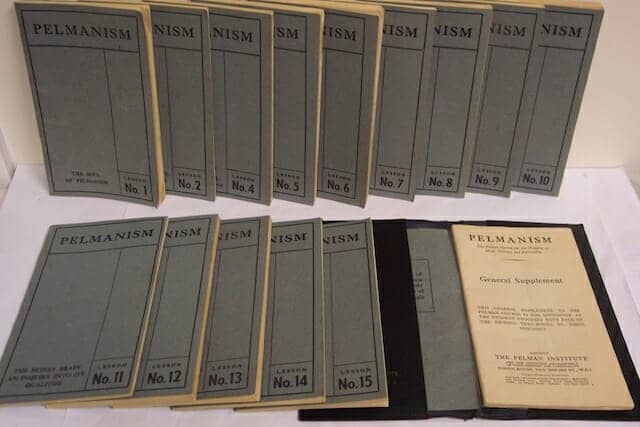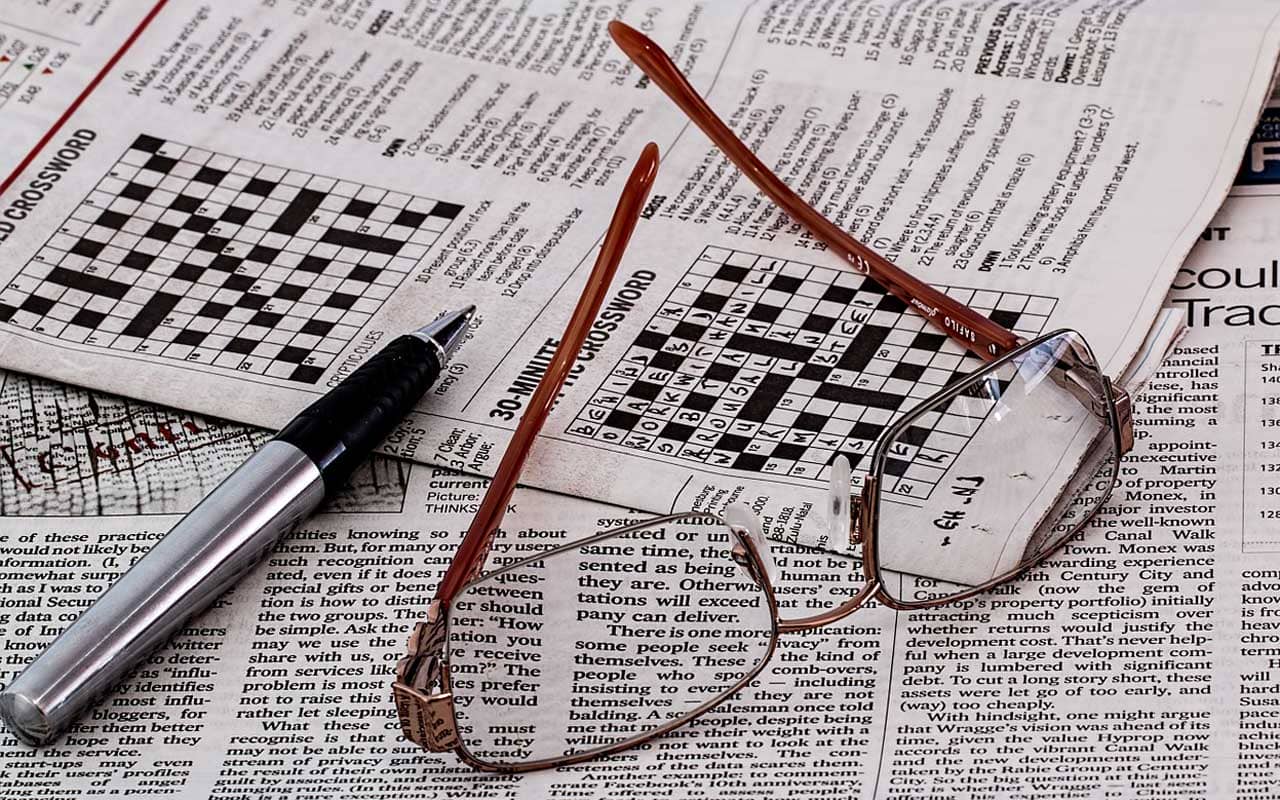 Memory games for dementia work best when they challenge and improve your ability to recall information.
Memory games for dementia work best when they challenge and improve your ability to recall information.
But not just any information.
Ideally, you’ll choose games that involve the kinds of information you actually need to remember in daily life.
For some people, that will involve where objects are located in the home. Other people might struggle with names.
This means that before deciding upon what games to choose, we need to face a few uncomfortable truths.
First, once a person has dementia, they often aren’t ready or able to dive into certain games.
Yet, many folks struggling to remember information or enjoy daily life are given games based on scientific studies that show a variety of benefits, but don’t actually deliver.
That’s often because studies do not reflect where you or your loved one stands at the particular moment you’re looking for useful activities that might help with some memory recovery.
That’s why on this page, I’ve gathered some of the memory games most likely to help people struggling with dementia in a variety of ways.
Let’s get started.
Memory Games: Are They Really Helpful For People With Dementia?
A memory game can be as simple as Concentration with playing cards or Kim’s Game.
The first involves laying out a set playing cards face down on a surface. You then flip over two at a time as you try to find matching pairs. I show you how I play the game in this tutorial video:
It exercises your memory because you need to remember where you previously saw variation cards in order to match the pairs.
Kim’s game, on the other hand, involves presenting players with a number of objects, typically on a try. Some of the objects are either covered or removed. Players then attempt to recall the missing objects.
In both cases, these kinds of games exercise spatial memory, and to a certain extent semantic memory because you need to recall the names of the cards or objects. Hanabi is a slightly more strenuous game along these lines, made more challenging by the fact that you know the cards of other players, but not your own.
The idea that such games improve memory goes back at least to the 1890s with Pelmanism. As a form of brain training, Pelmanism was incredibly popular, so much so that apparently Britain’s prime minister used the program during this game’s heyday. As Oliver Burkeman has pointed out, some of the exercises included with Pelmanism went beyond games and resemble what we now call mindfulness or mental strength exercises.
At the end of the day, the memory games you choose need to:
- Provide mental stimulation
- Include new learning & variety
- Challenge your attention and focus
- Engage your working memory
- Practice pattern recognition
- Stimulate neuroplastic changes in your brain
Activities like this can help people with dementia. But it’s important to note that you really have to look at the needs of the individual.
For example, the individual might need exercise and benefit from the brain volume increases seen in this study of an in-home “Exergame” activity. That kind of activity is very different than playing a board game. Yet you’ll sometimes see experts suggesting word puzzles, which provides no physical fitness at all.
The 7 Best Brain Games To Prevent Dementia By Type
As I mentioned above, often when people have dementia, it’s too late for them to benefit.
That’s why when talk about memory games for dementia, we really need to focus on prevention above all. As Kasper Bormans has pointed out, dementia is about more than memory loss anyhow. And as he discusses in his TEDx Talk about the Memory Palace technique as tool to fight dementia, there’s still a lot of research that needs to be done before reliable curative activities can be promoted.
So what can you play to help ward off dementia? In addition to Concentration games like I demonstrate in the video above, here are some suggested games and details that will help you get more out of them.
One: Progression-Based Games
A progression-based game exercises your long-term memory because you have to remember where you are in the game.
These include:
- Memory match games
- Tangram puzzles
- Word search games
- Crossword puzzles
- Maze books
- Rubik’s Cubes
A word of caution with crossword puzzles, however. The answers are often on the same page as the game. As a result, many people cheat, robbing themselves of the memory exercise they need. If you cannot delay your gratification while completing the puzzle, it’s best to leave them out.
One incredibly fun game that you can do socially, sometimes including with people struggling with dementia or Alzheimer’s is to progressively tell a story.
You need at least three people. Have the first person start the story, then each person adds a sentence. You go around and around, each player trying to recall as much of the story that has been built until someone makes a mistake.
Example:
- Player A: A red rabbit visited Berlin…
- Player B: A red rabbit visited Berlin and met the prime minister who played Pelmanism…
- Player C: A red rabbit visited Berlin and met the prime minister who played Pelmanism and they rewrote all of Shakespeare’s plays…
The sillier you make the game, the more fun it is. Every time you play it, everyone’s memory will get a great workout.
Two: Pattern Recognition Games
Games like Simon involve remembering patterns of sound, or sound and light.
You can often find games like this at Dollar Stores, as demonstrated by Sherri in this video:
There are countless variations of games like these. Are they the best brain games for adults? As always, it depends on where you currently stand with your memory and issues like long-term memory loss.
Three: Adaptive Memory Games
Let’s talk about the world of apps. These are games that literally learn about how you’re performing and then adapt to progressively challenge you.
A well-known example is Cogmed, which I discussed with Dr. Christine Till on the Magnetic Memory Method Podcast.
Do these kinds of brain games work? According to Dr. Till, results were typically only seen when people using the games followed-up with personal coaching. If you’re willing and able to do that, it could be worth the time and invesment.
Four: Working Memory Games
One of the most interesting and popular set of activities stems from one activity developed by psychologists called n-back.
Developed by Wayne Kirchner way back in 1958, it started with cards, much like the game Concentration. In the initial studies, it involved one card at a time. Later, it became “dual n-back” when more than one card entered the activity.
Many digital versions have arisen since. Some involve sounds, objects and arguable VR uses with Memory Palaces emulate similar effects. One study even found that dual-n-back activities provided better results than using Memory Palaces.
There’s a lot of controversy over what various studies reveal, however. I see the activity as useful for focus and concentration above all. I haven’t seen any evidence at all that they correct memory disorders, that’s for sure.
Five: Trivia Games
Although we often think of trivia and memory in terms of competition, there are many casual games that will exercise your knowledge of world events and pop culture.
If you’re into history, look for games that test your factual understanding of periods you’ve studied.
Or if you’re an art fan, search for trivia games that focus on this field of interest. You can often find them in the gift shop at art galleries, or even read my article about using galleries at large for memory improvement.
At the end of the day, trivia provides great practice at remembering things by prompting you to tap into knowledge you’ve read, seen or heard in the past.
Six: Early-Stage Reminiscence Activities
When my mom started suffering early cognitive decline, I got her doing Dr. Gary Small’s research-derived “four details exercise.”
Basically, when you’re out and about, you take a moment to notice four details of a person. Then later in the day, you make a point of recalling those details. It’s called a “passive memory exercise” because you’re not using any memory techniques to do it. You’re just asking your memory to do a bit of work, exercising your recall abilities.
You can wait an hour, several hours or even days before recalling the details. I typically do it a few times a day and then a few times over several weeks.
For a more robust version, you can reminisce about your childhood with these memory games designed for that purpose.
Although this sounds like a silly activity, Reminiscence therapy for dementia does benefit some people with dementia.
As always, it really matters what kind of dementia is involved. For example, this study focused specifically on Alzheimer’s and vascular dementia. The only catch to the benefits provided by reminiscence activities is that they needed to be frequent and maintained over time.
That’s to be expected, however. Muscles in our bodies require the same frequent attention as our brains.
Seven: Combining Mental & Physical Activity
As we’ve seen, sometimes what we really need is physical activity. Juggling provides just that.
As Tom Vanderbuilt puts it in Beginners: The Joy and Transformative Power of Lifelong Learning, juggling provides “repetition without repetition.”
I decided to take things one step further by talking and reciting the alphabet backwards while juggling.
As you can see, this brain exercise worked out my mind, memory and body all at the same time.
To make juggling more game like, you can explore ways to do it with a partner. But I think it’s perfectly fine and have found it to be wonderfully effect on my own. The key is to bring together a recall exercise with juggling the balls at the same time.
Other ways you can combine mental and physical activity involve talking while walking with friends, listening to audiobooks at the gym and engaging in sports like archery that require estimation as you work your muscles and stance.
How To Monitor The Effectiveness Of Your Chosen Memory Games
I’ve spent a lot of time talking with the world’s best memory athletes. From Nelson Dellis to Alex Mullen, these people know their stuff. Some memory competitors have even won prizes in their retirement, such as James Gerwing.
As memory expert and scholar Johannes Mallow has suggested, it’s important to set a baseline and keep a journal to track your performance.
Then, set clear, measurable goals for improvement and regularly assess your progress. For example, if you’re playing a simple game like Concentration, time yourself. See if you can get faster over the course of a month identifying the card pairs.
As you continue playing and tracking your results, observe how your memory changes. Reward yourself for the positive wins and get curious about any dips you notice.
If needed, check-in with your family and your medical advisor, who might recommend professional evaluation. They have a variety of memory tests (like the memory number test) that can help you discover insights that will likely help you improve your memory further.
Overall, consider the quality of your life and make sure you’re having fun. I’ve had a lot of clients over the years who push themselves. Yes, challenge is important, but sometimes they take it to extremes, reducing the fun that memory games can and should provide.
It’s Worth Repeating The Rules That Make Memory Games Work
Whichever memory games you choose, I suggest you keep these considerations in mind:
- Choose games and activities that involve short-term, working memory and long-term memory. Avoid focusing on just one memory type.
- Personalize your activities as much as possible. Inventing your own games or changing the rules will give you an additional mental workout.
- Keep positive. There are a lot of games that have dark themes. These might not serve some people and you generally want experiences that boost your mood and lift your self-esteem when you’re struggling to improve your memory.
- Play games that involve social interaction as much as possible.
You can also go beyond games. For example, I regularly go through my memory journals to reminisce. Or I discuss photos with my wife, which keeps autobiographical and episodic memory sharp.
I’ve also written memoirs and engaged in many music-based activities. All of these activities provide a lot of sensory memory exercise that we can all use.
If you’d like even more activities, get my free course here:
It includes a game-like aspect in terms of setting up and using a Memory Palace.
The reason why is that you’ll be setting up a familiar space and crafting a journey through it using the method of loci.
Then, you’ll place mnemonic images in it and treat them kind of like hide-and-seek or objects in a treasure hunt.
You can add timed-challenges to how you use Memory Palaces once you have a couple prepared and then everything becomes like a video game.
In fact, I’ve discussed how to base Memory Palaces on video games from the get-go in this tutorial on virtual Memory Palaces.
Personally, I’ve found using Memory Palaces and other ancient memory techniques to be the must fun and rewarding activity of all.
But again, base the activities you engage in on the kinds of results you’re looking for with your current situation in mind. That way you’ll get the most out of the games you play and avoid some of the scoundrels out there with apps that are often exploiting people who are desperate from some improvement.
So there you have it. Now it’s time to pick a memory game and start playing.
Prepare to have fun as the benefits roll in!
Related Posts
- Memory Games: 22 Diversions That Give Your Brain a Boost
Ever find yourself in the middle of a sentence and unable to find the word…
- Memory Athlete Braden Adams On The Benefits Of Memory Competition
Braden Adams is one of the most impressive memory athletes of recent times. Learn to…
- Do Brain Games Work? Here's A Better Way To Fix Your Memory
Do brain games work? Some will help improve your memory in a manner of speaking.…







